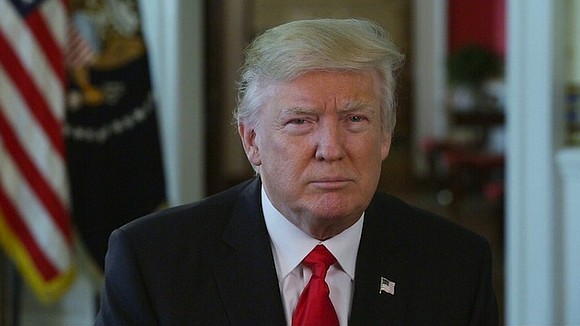Poll: Trump and GOP Never Intended to Strike a Bipartisan Tax Deal
CNN/Stylemagazine.com Newswire | 12/20/2017, 5:52 a.m.
Analysis by Gregory Krieg, CNN
(CNN) -- As Republicans rush their tax bill to the House and Senate floors for a final round of votes, a new poll shows that Americans do not believe that the GOP, in crafting the controversial legislation, reached out in good faith to Democrats.
Only 27% say Republicans and President Trump sought meaningful input from their partisan opponents on Capitol Hill, according to a new CNN poll conducted by SSRS. More than six-in-10 respondents said the opposite.
Republican officials in Washington, who are expected to pass the bill and send it to the White House late Wednesday, have accused Democrats of shutting down any across-the-aisle overtures. Moderate Democrats, including a few up for election next year in red states, were once thought to be amenable to a compromise. But the GOP never came close, or appeared to make much of an effort, to enlist their ideas or votes.
Democrats, for their part, are deeply skeptical that this massive, top-heavy tax cut will deliver the broad economic benefits promised by Republicans. They have duly rejected every version of the proposal en masse for favoring the wealthy and adding more than $1 trillion to the federal debt.
Despite the party's concerted opposition, Americans have greater faith in the Democrats' good faith. Thirty-seven percent say the party made an honest effort to work alongside Trump and the GOP, with 53% disagreeing. The results are predictably starker along party lines. Only 6% of Democrats believe Republicans made an honest attempt to work together. On the flip side, 20% of Republicans said the same about the Democrats.
So how does this compare to the similarly pitched fight over Obamacare in 2009 and 2010? Estimates of the opposition's good faith have diminished. Despite months of fiery protests, most notably by the nascent tea party wing of the GOP, against the Democratic agenda, a Washington Post poll from March 2010 found that 48% of Americans thought President Obama and the Democrats did their best to curry Republican support. (That's down, as noted above, from the 27% who said the same about Republicans' efforts during the tax debate.)
The spread reflects the reality of the times. Democrats ultimately passed health care along party lines, but not before prolonged, if fruitless, efforts to woo Republicans on the Senate Finance Committee. Three of them, Sens. Chuck Grassley of Iowa, Mike Enzi of Wyoming and Orrin Hatch of Utah, are still in office today. Sen. Olympia Snowe of Maine chose not to run for re-election in 2012.
Ultimately, former Chairman Max Baucus, a Montana Democrat, gave up the ghost and forged ahead.
"On the one hand, I want to work to get a solution," he said as the negotiations faltered, "but I want to make clear that we aren't going to dally."
Over the past decade, the public's view of the parties' authentic willingness to work together has diminished too. In the 2010 poll, 12% said they believed both parties approached the health care debate in good faith. That number fell to 8% as the 2017 tax fight comes to a close. On the flip side, those who thought neither party made a real effort to compromise climbed from 31% in 2010 to 36% this year.
These opinions are confirmed by the reality on the ground. In 2017, Republicans made no serious outreach to Democrats, a number of whom have insisted they would have been willing to consider a compromise under certain parameters.
Late on December 1, hours before the Senate passed its initial version of the bill, Senate Minority Leader Chuck Schumer, a New York Democrat, tweeted: "Tonight, I feel mostly regret at what could have been. Tax reform is an issue that is ripe for bipartisan compromise. There is a sincere desire on this side of the aisle to work with the GOP, particularly on tax reform, but we have been rebuffed, time & time again." (To be sure, Republicans had similar laments back in 2009.)
The CNN/SSRS poll suggests 37% believe Schumer. Back in 2010, 31% accepted Republican cries that they'd done their best to work with the Democratic majority.
What this means going forward, and into the 2018 midterm season, is less clear. Voters tend to talk up their desire for bipartisan solutions right up until their side nears a legislative victory. The greater danger for Republicans here is that the narrow remaining sliver of true independents and swing voters will be put off by their bullish, opaque tactics.
For Democratic voters, the process employed in passing these tax cuts will only heighten their already considerable disdain for Trump and congressional Republicans. Only 3% said they supported the bill on the merits; 4% approved of Trump's job in office.
And given that every poll finding has a margin of sampling error, those numbers could actually, somehow, be even lower.





